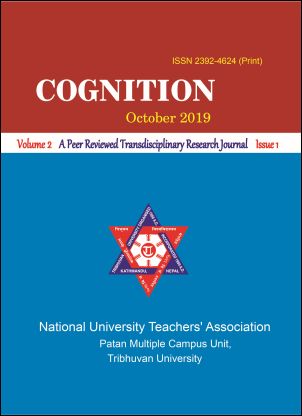People's Responses and Problems in Governing Practice at Chhededaha Rural Municipality of Bajura District
DOI:
https://doi.org/10.3126/cognition.v2i1.55558Keywords:
Corruption, Effectiveness, Efficiency, Governance, PracticeAbstract
Good governance is the key for development and prosperity. Effective, stable, and accountable governments are essential in the fight against poverty. It is the critical factor in poverty reduction as well as in achieving development objective in its right. Good governance does not occur by chance. It must be demanded and nourished explicitly and consciously by the nationstate. Local government is the closest tier and unit of government to the citizen at the lowest level. Good governance is the major yardstick for people's prosperity. Well accepted good governance always addresses the felt needs of local people. If governing practice does not run according to people's desire, it always stimulates the corruption and instability. This manuscript examines the major problems and people's perceptions in light of local level governing practices including planning, budgeting, fund mobilizing, participation and entire developmental activities. Lack of knowledge governance values and principles, poor service delivery, unnecessary interference, inconsistency among the political parties, prevalence of corruption, low level of practical and theoretical ideas of service delivery mechanism among the elected members, lack of honesty between elected members and government personnel are the key problems of good governance in practice.




